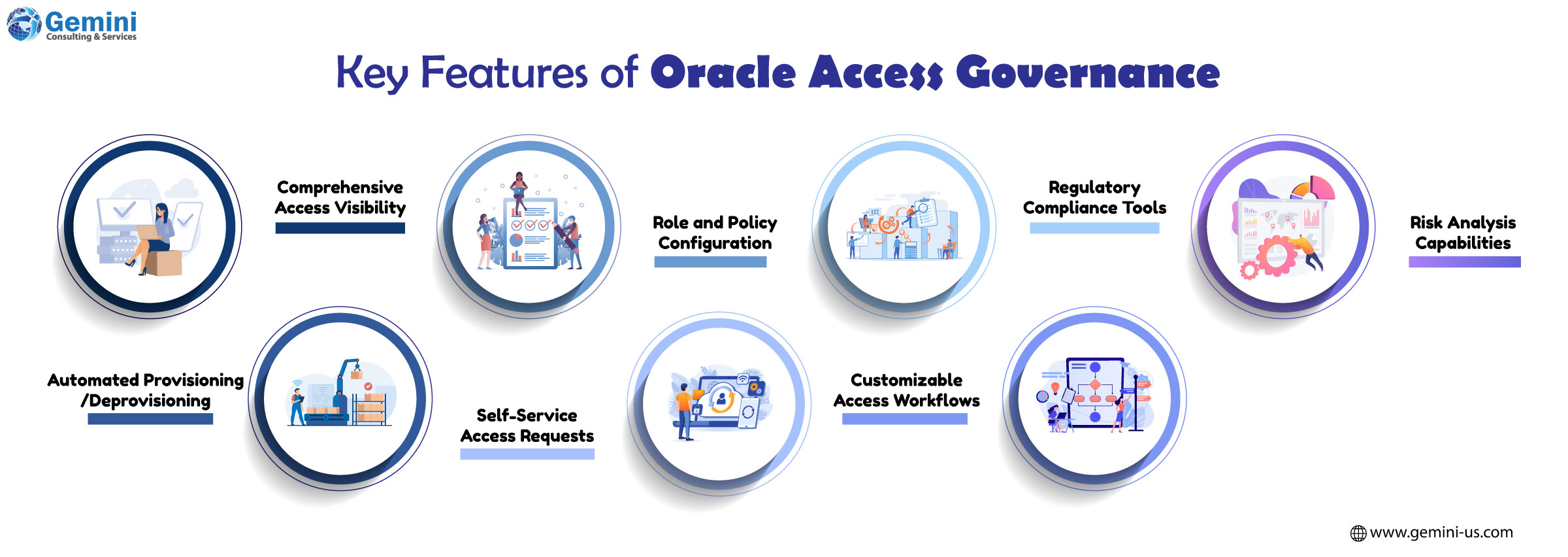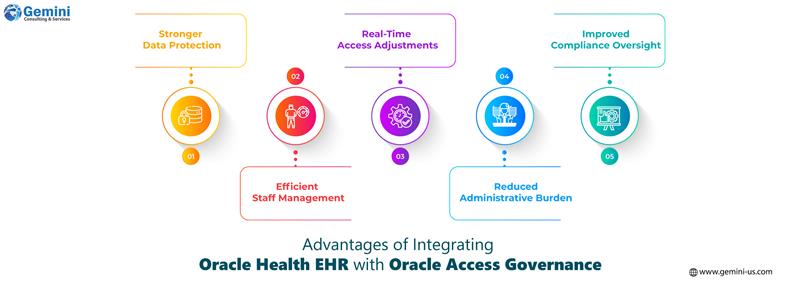Oracle has introduced an integrated solution that connects Oracle Access Governance with Oracle Health EHR (formerly Cerner Millennium), empowering healthcare providers to effectively manage and control access to Electronic Health Records(EHR). This integration streamlines identity and access management processes, automates user provisioning, enhances data protection, and supports compliance with industry regulations.
The Role of Access Governance in Healthcare
Healthcare institutions manage extensive volumes of confidential patient data. In an environment marked by escalating cyber threats and strict regulatory standards like the Health Insurance Portability and Accountability Act (HIPAA) and Health Information Technology for Economic and Clinical Health Act (HITECH), managing who can access sensitive information is critical. Access Governance ensures that only authorized personnel can retrieve or interact with protected data, enhancing both security and operational oversight.
Common Access Management Challenges in Healthcare
Healthcare organizations face multiple challenges in safeguarding EHR systems:
- Preventing unauthorized access to patient data
- Managing varying access needs of medical and administrative staff
- Ensuring adherence to evolving regulatory standards
How Oracle Access Governance Integrates with Oracle Health EHR
Oracle Access Governance enables organizations to automate and enforce access controls across healthcare systems. By linking with Oracle Health EHR, the platform offers seamless user identity orchestration, streamlining access to both clinical and administrative tools.

- Comprehensive Access Visibility: View and monitor who has access to which systems and data, helping maintain strict compliance and security.
- Automated Provisioning/Deprovisioning: Dynamically update user access based on changes in employment or roles.
- Role and Policy Configuration: Assign access levels through predefined roles and rules, ensuring appropriate permissions.
- Self-Service Access Requests: Allow staff to request access through an intuitive system, with automated approval processes.
- Customizable Access Workflows: Configure access processes depending on requester roles and specific use cases.
- Regulatory Compliance Tools: Maintain audit trails, conduct periodic access reviews, and meet certification standards.
- Risk Analysis Capabilities: Identify potential security risks by analyzing access patterns and anomalies.
Real-Time Identity Management for Dynamic Healthcare Environments
Oracle Health EHR is a commonly used system that facilitates care coordination, information exchange, and informed clinical decision-making. The integration with Oracle Access Governance enhances its capabilities by allowing healthcare organizations to securely manage user access across multiple departments and job functions.
For example, if a physician temporarily needs access to records outside their usual department, Access Governance can grant the necessary permissions based on their role. However, this will not be permanent. The system is set in such a way that it automatically revokes the access after the requirements ends. This reduces the risk of lingering permissions. This automated approach not only secures sensitive data but also adapts to the fluid nature of healthcare roles and shifts.

- Stronger Data Protection: Minimizes the chances of data breaches through role-based, automated access.
- Efficient Staff Management: Simplifies onboarding and offboarding with automated access control.
- Real-Time Access Adjustments: Enables teams to respond quickly to evolving access needs.
- Reduced Administrative Burden: Cuts down time and operational costs through streamlined workflows.
- Improved Compliance Oversight: Integrated audit and reporting features assist with regulatory adherence.
Conclusion
By combining Oracle Access Governance with Oracle Health EHR, healthcare providers can achieve a comprehensive, secure, and efficient identity management system. This integration supports both data protection and regulatory compliance, while improving user workflows and reducing manual administrative tasks. As healthcare systems continue to evolve, adopting such integrated solutions is vital for staying secure, efficient, and compliant.



